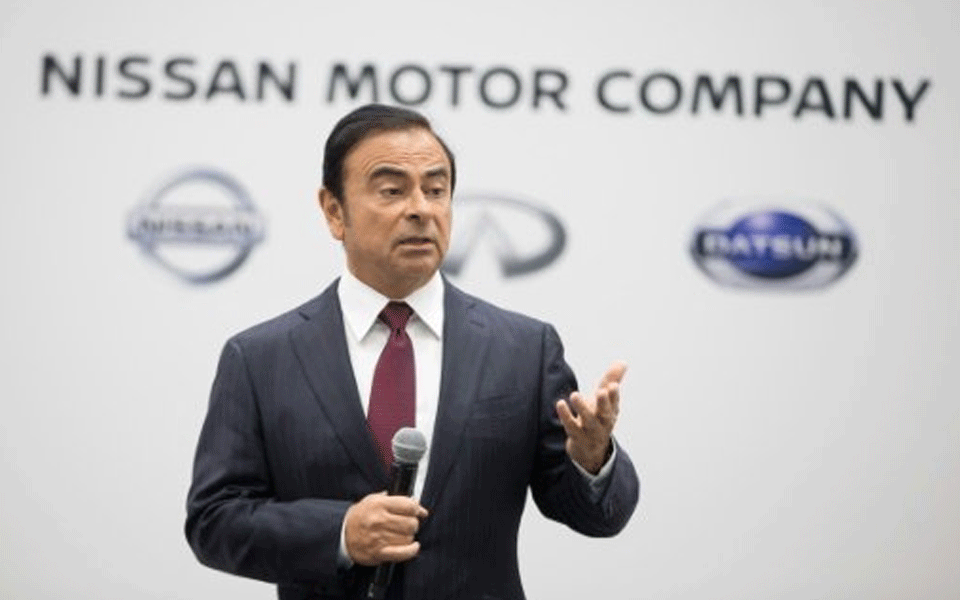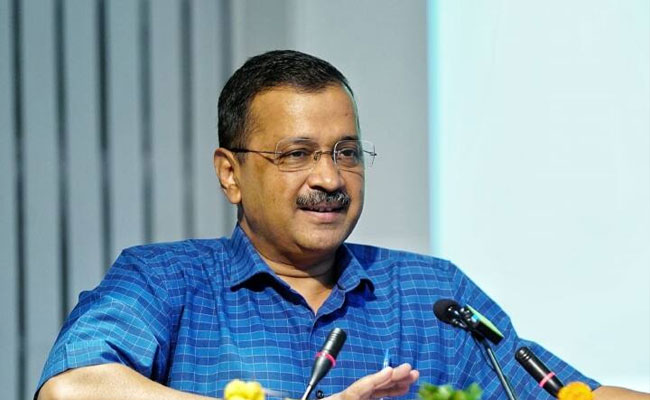Tokyo, Nov 22: Nissan board members voted unanimously to sack Carlos Ghosn as chairman on Thursday, a spectacular fall from grace for the once-revered boss whose arrest for financial misconduct stunned the car industry and the business world.
Ghosn stands accused of under-reporting his income by millions of dollars and a host of other financial irregularities, alleged after a months-long internal Nissan probe following a whistleblower report.
His ouster as chairman represents an astonishing turnaround for the titan of the auto sector who revived the Japanese brand and forged an alliance with Renault and Mitsubishi Motors, which sold a combined 10.6 million cars last year more than any other firm.
It also throws the future of the alliance into doubt, as Ghosn was the architect of the fractious tie-up -- which employs 450,000 people globally -- and the glue holding it together.
"After reviewing a detailed report of the internal investigation, the board voted unanimously ... to discharge Carlos Ghosn as Chairman of the Board," the statement said.
Nissan also stressed its "long-standing... partnership with Renault remains unchanged" and that "the mission is to minimise the potential impact and confusion on the day-to-day cooperation" between the firms.
Prosecutors intercepted the Brazil-born tycoon Monday as he landed in Tokyo on a private jet, accusing him and another executive Greg Kelly of understating the chairman's income by around 44 million between June 2011 and June 2015.
His fate as Nissan chairman appeared sealed just hours later as his hand-picked successor as CEO, Hiroto Saikawa launched an impassioned broadside at his former mentor, muttering about a "dark side" to the Ghosn era and urging his sacking.
Even after being jettisoned as chairman, Ghosn remains technically a member of the board as a full shareholders' meeting is required to remove him.
Nissan said it would study the creation of a "special committee" to take advice from a third party on improving its internal governance and executive pay.
Ghosn is being held custody in a Tokyo detention centre and has not been seen in public nor made any comments since his arrest.
He received a visit from Brazilian consul Joao de Mendonca on Thursday who told AFP that Ghosn "sounded very well, in good health".
However, his conditions are likely to be a far cry from what the millionaire businessman is used to. Inmates at the centre are typically allowed 30 minutes exercise per day and only two baths a week.
Ties and strings are removed to prevent suicide attempts and former guards and lawyers said Ghosn was almost certain to be held in a cramped cell on his own.
On Wednesday, prosecutors successfully applied to extend his custody for an additional 10 days as they step up their questioning.
Deputy chief prosecutor Shin Kukimoto said that the type of crime Ghosn is accused of is "one of the most serious types of crime" under Japan's Financial Instruments Act and Ghosn could face a 10-million-yen fine and/or a 10-year prison sentence.
Under the law, companies themselves can also be held accountable for the falsified documents, Kukimoto said, following reports that prosecutors believe Nissan also has a case to answer.
Public broadcaster NHK said Nissan had paid "huge sums" to provide Ghosn with luxury homes in Rio de Janeiro, Beirute, Paris and Amsterdam "without any legitimate business reason".
Ghosn had a reputation as a hard-nosed workaholic with no qualms about closing factories and slashing jobs -- earning the nickname "Le Cost Killer" in France, where 47,000 employees work for Renault.
But his exorbitant salary and flashy lifestyle at odds with Japanese corporate culture drew fire.
According to the Financial Times, Ghosn's fall from grace came as he was working on a full-blown merger of Nissan and Renault.
This was opposed by executives in the Japanese firm that has ended up being the most profitable player in the partnership and the FT said Ghosn's departure could be used as a pretext to rebalance the alliance in Nissan's favour.
Renault has held off jettisoning Ghosn, pointedly saying Nissan had failed to share the evidence it had gathered with its sister company.
Governments in Paris and Tokyo have been scrambling to contain the fallout from the arrest, with President Emmanuel Macron saying France would be "extremely vigilant" about the stability of Renault and the alliance.
Analysts said that despite clear tensions between the two firms headquartered 10,000 kilometres apart, neither company has the financial might alone to make the heavy investments in electric vehicles considered to be the industry's future.
"It would be like a couple divorcing after 20 years it would be complicated, very expensive and not easy to do," said Gaetan Toulemonde, an analyst at Deutsche Bank.
"Honestly, I don't know if it's even possible."
Let the Truth be known. If you read VB and like VB, please be a VB Supporter and Help us deliver the Truth to one and all.
Popular YouTuber and influential social media figure, Dhruv Rathee, has extended his digital footprint by launching his YouTube channel in five prominent Indian regional languages. Widely recognized for his informative videos covering a spectrum of social, political, and environmental subjects in Hindi, Dhruv's latest endeavor aims to cater to a broader audience base across the country.
The newly inaugurated YouTube channels, introduced on Thursday, April 18, will feature dubbed versions of Dhruv's Hindi videos in Tamil, Telugu, Bengali, Kannada, and Marathi. Among the initial offerings on these channels is the translated rendition of his recent viral video titled, “Is India becoming a dictatorship?”
Originally released in February, the aforementioned video garnered substantial attention, amassing over 24 million views. It delved into contentious topics such as the Chandigarh mayoral election, the ongoing farmers' protest, and voiced apprehensions regarding the trajectory of India's democracy. Drawing comparisons to regimes like North Korea, the video also scrutinized the functioning of India's Election Commission, raising concerns about the state of democracy under Prime Minister Narendra Modi's leadership.
However, the video's critical stance attracted criticism from supporters of the ruling Bharatiya Janata Party (BJP), with some dismissing Dhruv's perspective due to his residence in Germany. In response, Dhruv addressed BJP supporters, urging them to approach the video with an open mind. He emphasized that personal attacks on him were merely distractions, urging viewers to focus on the underlying issues at hand. “The real issue is something very serious if you truly care about the nation. Wake up!” he asserted.
Launching in 5 Indian Languages today!
— Dhruv Rathee (@dhruv_rathee) April 18, 2024
Share with your friends from these states! The most important video is already live on these channels.
Tamil-https://t.co/iIAY46UONr
Telugu- https://t.co/uHUFmMWOY2
Bengali-https://t.co/Ps41JJ8VuC
Kannada-https://t.co/UTgIvoU8bf… pic.twitter.com/vuKfLctR8h





